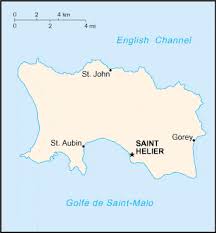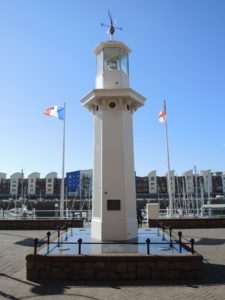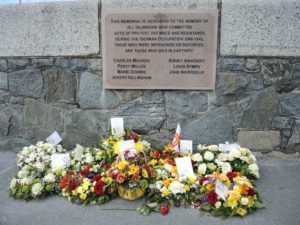 Jews settled in Jersey in the first half of the 19th Century. A community was established in St. Helier, which ceased in 1870.
Jews settled in Jersey in the first half of the 19th Century. A community was established in St. Helier, which ceased in 1870.
Following the invasion of 1940, Jersey was forced to pass laws by the German occupiers, requiring the identification of Jews. All non Jersey and British foreigners (aliens) had already been required to register with the police, but the records did not mention their faith. An advertisement appeared in the newspaper in October 1941 calling on all Jews to identify themselves.

Island officials implemented German orders against the tiny Jewish community, although some officials attempted to mitigate some anti-semitic measures, such as the wearing of gold stars. They Aryanised businesses by “selling” them but returning them to their rightful Jewish owners after the war. However, officials on Jersey did quiz individuals about their Jewish ancestry and imposed strict curfews on Jews (they were allowed to shop only between 3pm and 4pm). Jewish businesses were closed down and families struggled to survive without their livelihoods.
The Jews were terrified; on Jersey, two committed suicide, one was admitted to an asylum (where he died, the cause of death “maniacal exhaustion, insanity”). Many Jews made no attempt to hide their background, and some attended the island government offices to volunteer information on their grandparents’ ethnicity.
 It wasn’t until 1996 that the first memorial to those who died was unveiled: the Lighthouse Memorial to the Jersey 21 who died in concentration camps and prisons. It would take Guernsey another 20 years to honour its resisters who died in prisons and camps. Guernsey’s Resistance Memorial was unveiled in 2015.
It wasn’t until 1996 that the first memorial to those who died was unveiled: the Lighthouse Memorial to the Jersey 21 who died in concentration camps and prisons. It would take Guernsey another 20 years to honour its resisters who died in prisons and camps. Guernsey’s Resistance Memorial was unveiled in 2015.
Middle-class Jews came to the Channel Islands during the 1960s and 70s to service the booming trade as an offshore tax haven. Several were accountants and lawyers and other types of everyday professionals. A synagogue was opened in 1972. It is located in Saint Brélade. At its peak Jewish the population between 80 and 120.
Currently, the Jersey shul has a formal membership of 49, although others are involved. It also includes the few Jews living in neighbouring Guernsey. The community is struggling going forward to maintain numbers and the skill sets needed to remain viable as a community.